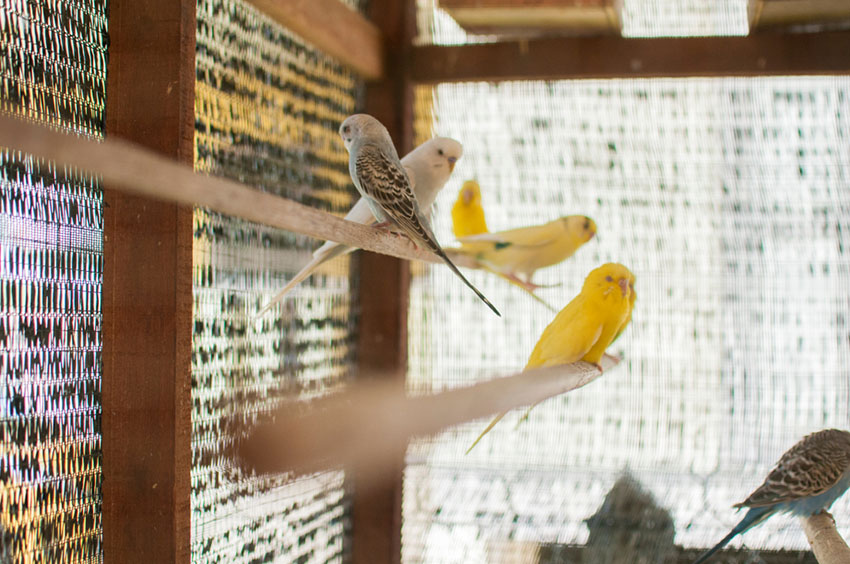Once you have become familiar with your bird’s everyday behaviour, you will very quickly notice when something is wrong. You don’t have to be an expert in diagnosing specific diseases in parakeets, as long as you can spot when the bird is acting out of character.
Parakeet Health Check
If you are keeping your parakeets in an aviary, illnesses will be much harder to spot and the chances of the disease spreading from one bird to another are much higher. So make sure you always check up on your bird’s health. Parakeets, like many other animals, are annoyingly good at hiding the symptoms of an ailment until it gets very serious. This helps in the wild, as an ill bird is more likely to get picked off by a predator, but it isn’t much help when they are kept in captivity.
Once you have managed to identify an ill bird, a trip to the vet should be top priority, and you should not delay this in hope of saving money on the vet’s bill. Think of it as a trip to the cinema or restaurant, a small price to pay for saving your bird’s life!
You should choose a vet who specialises in birds. If they ever tell you that small birds such as budgerigars cannot be treated, choose another vet! This assertion is untrue, but in the past decades has been often used as a cold comfort by vet surgeries more used to treating cats and dogs.

Health problems can spread quickly in crowded cages
Examining a Parakeet
There are a number of ailments that can afflict your pet birds. The one thing you should be doing is keeping an eye out for any symptoms, and to promptly call a vet as soon as a problem is spotted.
You can also gently examine your birds yourself, to check for problems such as wounds and lice. A finger-trained parakeet will be easy to coax onto your hand. Once they’re there, gently grip your bird as described in the Holding a Parakeet, above. Make your examination as quick as possible in order to not make your bird too anxious.



Comments
Mark, 2 September 2023
"Think of it in terms of the costs of a family trip to the cinema or restaurant." Would that this were so. The last visit to the vet for a very sick bird cost $2.500. That's some expensive movie ticket.
Leo, 5 March 2020
My female budgie’s sere has changed to blue. She had been ill for about a month, having what looks like wet head feathers and red rimmed eyes, sleeping a lot, has diarrhoea, but still eating and drinking as usual. She had this, recovered for a couple of weeks and is now like it again. She is apx sixish
Shane, 20 January 2020
Im no expert or anything but just got off the phone with my local vet. They normally charge $63, but since they are a local vet clinic and i am local the first one is free. it may be a long shot but call around your local vet office and see if they have a deal for new pets. Most do just to get you in and hope you return the favor by making them your pets vets. Also ive read, you should get birds to the vets right after buying to see what kind of health care the pet store you bought them from provided. I've also read having a regular vet for your birds can lead to better trust, and less stress on the birds. Take care of your pets, as if your were that pet. Also research your pets and right down any questions you might have for your vet. And by "local vet offices" i dont mean big corp. stores like petco. i mean a locally sourced or family owned vet office, that takes cares of birds.
Sandra, 31 October 2019
I think my budgie has got air sack mites he keeps squeaking and making funny sounds ,he is still eating and drinking but doesn't talk as much ,is there something I can put in his water
Sue, 2 October 2019
Hi my bird got abscess below eye.is it better to pop it all leave it